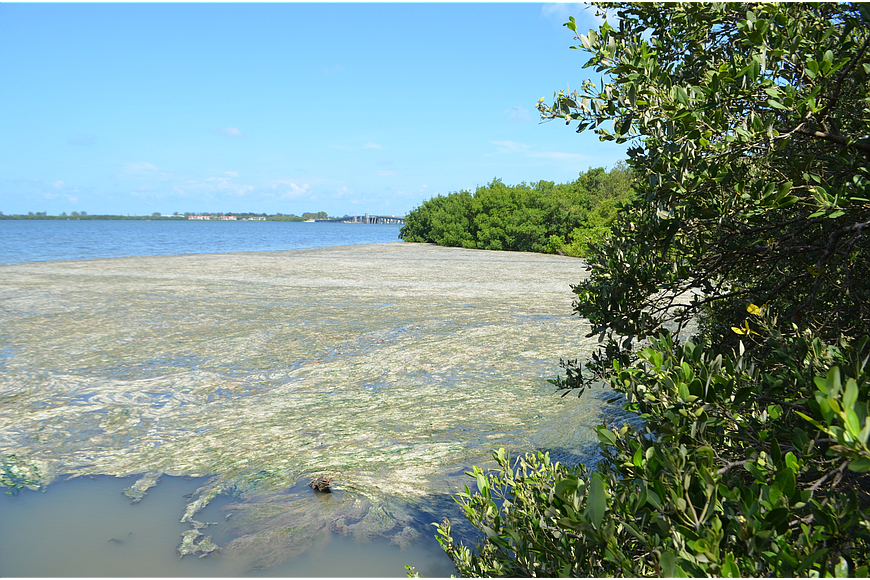- November 5, 2025
-
-
Loading

Loading

It’s no secret that one of the biggest attractors to Sarasota County is the waterways that surround and weave their way throughout the area.
That’s why the Gulf Coast Community Foundation launched a new initiative — The Community Playbook for Healthy Waterways — to help residents and county leaders focus on keeping those waterways clean and healthy.
Jon Thaxton, Gulf Coast Community Foundation senior vice president, said at a Siesta Key Association meeting that the organization first got the idea for a playbook when the county was experiencing red tide outbreaks in 2019.
After learning about factors that contributed to red tide, such as unnatural nutrients entering the county’s waterways, Thaxton said the organization felt called to do something.
“We thought, wouldn’t it be a great idea if we got all of these activities and information and data and put it together in one source, so that anyone could go to this source and have the information at their fingertips?” Thaxton said.
With help from area experts, the playbook highlights resident activities that cause an uptick in nutrients in the waterways and gives tips on what people can do to correct their behavior.
Jennifer Shafer, a marine ecologist and principal at Shafer Consulting, said the playbook has three main goals: reducing nutrients by managing the inputs, removing active nitrogen from soil and water, and improving community awareness to support informed policy decisions.
The playbook identifies 43 community activities across 10 topics, including central wastewater, septic systems and fertilizer, in an effort to identify holistic solutions to the problem.
Strategies include harnessing nature to rebalance the nitrogen cycle, installing green infrastructure and implementing new and improved technologies, such as upgrades to wastewater treatment plants. Each strategy was developed through research, data analysis and expert interviews.
“The breadth and depth of the 43 activities left no stone unturned,” Shafer said. “Some are easy; some are hard. Some cost a few dollars, and others cost thousands or millions.”
Sarasota County was the first county in Florida to pass a fertilizer ordinance and the first to have a stormwater environmental utility. Those investments contributed to an increase in sea grass and overall improvements to the county’s water quality.
However, Thaxton said there’s still work to be done — particularly when it comes to excess nutrients entering the waterways.
When too many nutrients caused by human activity get into the waterways, it causes changes in water quality measures, such as the amount of oxygen in the water, the amount of light that can penetrate to the seagrass and the presence of macro algae that kills sea life.
“We are putting so many nutrients in the waterway that the natural system that used to process or digest the nutrients can no longer do so, and as a result, the system is literally choking to death on too much food,” Thaxton said.
Thaxton said the waterways need to be protected not only because it’s good for the environment but also because it’s beneficial to the county’s economy.
“If you open up any advertisement of our Sarasota area, I challenge you to find one that does not feature our water and our waterways,” Thaxton said.
Creators hope the playbook can be a one-stop-shop for residents and policymakers to become informed on ways to get involved.
“There’s something in there for everyone,” Shafer said. “It focuses, prioritizes and coordinates our community activity and philanthropy in order for us all to make water quality gains together.”